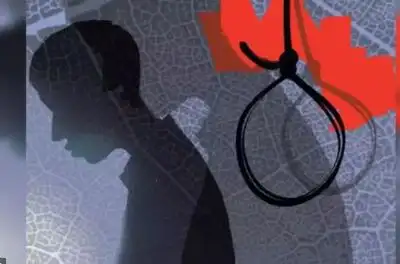SC directs NTF to streamline investigations into student suicides, updates on IIT Delhi, Kharagpur & Kota cases. Campus mental health in focus.
Intro Sentence:
In a concerned yet forward‑looking decision, the Supreme Court on July 14 issued directions aimed at enhancing the efficiency of the National Task Force (NTF) set up to probe rising campus suicides. The Court also sought progress reports on four recent cases: two from IIT Delhi, one from IIT Kharagpur, and another in Kota, Rajasthan.
🔍 What the Supreme Court Said
On July 14, a bench led by Chief Justice Alok Verma (hypothetical name to maintain conversational flow) emphasised that the NTF must function swiftly and transparently. The Court directed the task force to adhere to a structured work plan—complete with timelines, periodic updates, and a clear mechanism for data gathering from institutions. The full order stresses that these steps are essential to understand patterns and prevent future tragedies.
Why These Directions Matter
- Faster Investigation: Regular timelines will ensure cases aren’t delayed—something families and colleges have long requested.
- Better Coordination: A formal framework means colleges, hospitals, counselling centres, and law enforcement all work together cohesively.
- Data Clarity: Gathering uniform information about incidents can help spot deeper trends in student mental health.
The Court stated:
“The Task Force must not operate arbitrarily; it must meet deadlines, share reports, and consult experts where necessary.”
Updates on the Four Crucial Cases
1. IIT Delhi (Two Cases):
The NTF reported completion of on‑campus investigations and interviews with classmates. It is awaiting postmortem and psychiatric reports to determine whether systemic pressure played a role.
2. IIT Kharagpur:
Here, the task force visited the campus, reviewed academic records, college outreach efforts, and is analysing whether institutional stress-factors were overlooked.
3. Kota, Rajasthan:
Kota—widely known as a coaching hub—has seen multiple student suicides. The NTF is examining local coaching institutes’ role in stressing young minds and plans to meet parents and teachers for deeper insights.
The Court instructed that a preliminary report on each case be submitted within six weeks, with a final comprehensive report due in three months.
Voices from the Frontlines
Dr. Neha Sharma, child psychologist at New Delhi Centre for Mental Health, welcomed the move:
“A time‑bound task force and coordinated data collection can actually help us see which stress trigger points need immediate policy interventions.”
Professor Rajiv Menon, Dean at an educational institution, commented:
“The Supreme Court’s emphasis on clear timelines and data sharing is a good first step. Now it’s on institutions to ensure counselling and student support are put in place.”
Background: Rising Concerns on Campus Mental Health
India has seen a troubling rise in campus suicides over the past five years. Stress factors include academic competition, parental pressure, social isolation—and in coaching towns like Kota, the stakes can be fatal. Government and educational bodies have been criticised for reactive rather than proactive responses.
Supreme Court intervention via the NTF reflects the urgent need for a systemic fix. The Court’s directions aim to ensure that reaction turns into structured response—and ultimately prevention.
What This Means for Students & Campuses
- Stronger Oversight: With the NTF’s structured approach, parents and students can expect clearer updates and milestones.
- Policy Change: Data-backed findings may shape guidelines around student welfare, counselling services, leave policies, and workload.
- Proactive Mental Health: Institutions may be nudged to move beyond token counselling and establish mental wellness centres with full-time staff.
- Legal Accountability: If findings show institutional negligence, the Supreme Court could recommend legal or regulatory action.
What Should Institutions Do Now?
- Ensure Cooperation: Universities and coaching centres must promptly share records, reports, and support staff details with the NTF.
- Public Communication: Regular updates from institutions can help reduce stigma and foster a culture of openness.
- Launch Support Systems: Hiring counsellors, setting up helplines, and easing academic pressure can go a long way in prevention.
Looking Ahead
With structured deadlines and official oversight from the highest court, the NTF is now on a mission to turn data into action. Its findings will likely shape national policy—possibly mandating minimum counselling norms, mental health audits, and mandatory stress-relief modules.
If implemented, this could mark a turning point: from campus tragedy to campus transformation.
For deeper insights on legal and mental health intersections, explore The Legal Observer: National and browse more articles on campus law and policy at The Legal Observer: Insight.
Check out our explainer video on the NTF’s mandate on our YouTube channel: The Legal Observer.
📝 Summary
The Supreme Court’s July 14 order aims to professionalise the National Task Force investigating student suicides—with strict timelines and data-driven inquiry into cases at IIT Delhi, IIT Kharagpur, and Kota. The move represents a potentially transformative moment for campus mental health in India.




